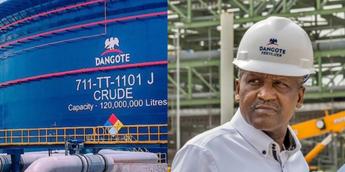The Permanent Secretary, Ecological Project Office, Dr. Aishetu Ndayako has reaffirmed government’s commitment to co-developing a national action framework with Centre for Renewable Energy and Action on Climate Change (CREACC-NG) on charcoal and forest governance, backed by science, equity and sustainability.
Ndayako disclosed this at a one day high level stakeholder dialogue on charcoal production and forest reservation with the theme: “Trade and Trees – Rethinking Charcoal Production and the Vanishing Forests” in Abuja, as she states that the strength of a nation is not only in its infrastructure or its economy but in the health of its environment and the wisdom of its decision.
She said: “Charcoal remains a significant source of household energy for millions of Nigerians, particularly in the rural communities. Over 70per cent of our population depend on biomass for cooking, with the demand for charcoal exceptionally high but for export and domestic use. Again the trade is informal, weakly regulated and environmentally destructive.
“Trees are felled indiscriminately and entire ecosystems are degraded with minimal effort at regeneration. Forest which serves as our carbon sinks, biodiversity reservoirs, and cultural heritage are under siege. Across the forest belt from Oyo to Cross River, from Niger to Taraba, we see daily the conversion of green canopy into smoke and ash. This is not just deforestation it is ecosystem collapse in motion.”
Speaking, the Executive Director, CREACC-NG, Usman Mohammed said Nigeria is the largest producer of charcoal in Africa and second largest in the world after Brazil and the Middle East. Charcoal trade has undeniably supported many rural households and small scale producers. However, it comes with a cost which is our forest.
He added that, there is an alarming rate of deforestation and tree cover loss especially in the Savannah woodland of Niger, Taraba, Bunue, Kwara and Kogi states. 1.5 million trees are lost every day, contributing to a 3.5per cent deforestation rate annually. This leads to significant CO2 emissions, biodiversity loss, drought, land degradation, desertification and health issues from inefficient production methods.
For every tons of charcoal produced, over 5,000kg of wood are consumed, this is equivalent to felling approximately 22 shea trees and we benchmark the prices per kg which is equivalent N7,000 per tree. A healthy tree provides oxygen to four people in a day, it absorbs 30kg of CO2 with over 60 per cent of Nigerians depending on charcoal for cooking due to limited access to cleaner energy alternatives.






